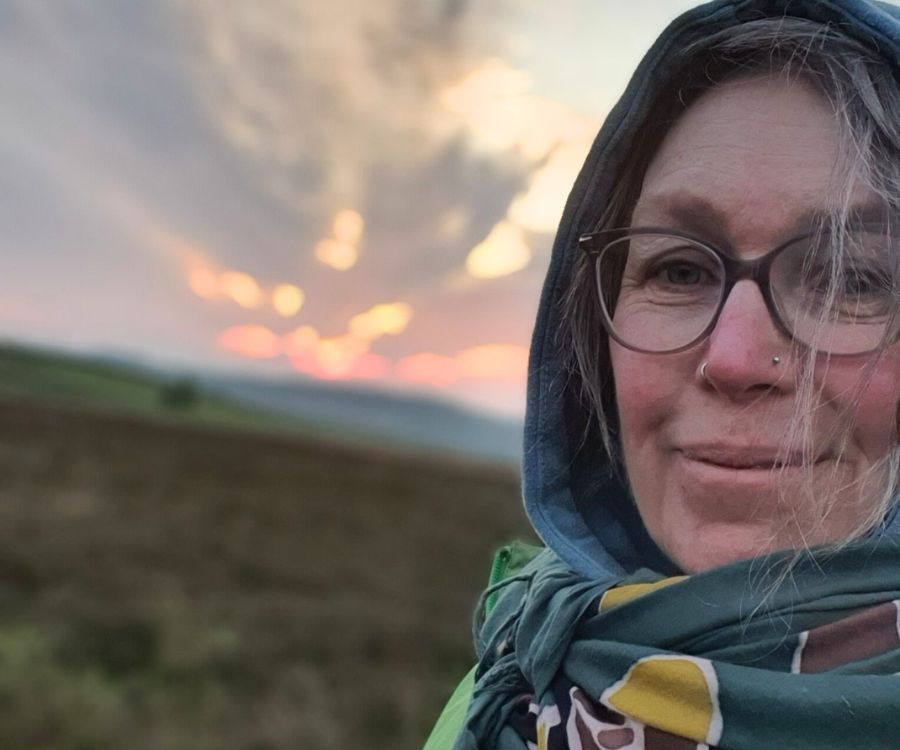Based at the Petrus’ community garden, PIER, Jo supports individuals towards improved wellbeing through engagement with nature.
We had a chat with Jo to find out more about how and why she does it!
What is the role of a Social Therapeutic Horticultural Practitioner?
The purpose of my role is to support individuals on their journey toward improved wellbeing by engaging with nature. I work with Nature for Health social prescribing to help those referred to the garden, by introducing them to the transformative power of the outdoors, particularly through horticultural therapy practices.
At the heart of this is the Pier Garden, a unique outdoor space where people can reconnect with nature, take part in hands-on gardening activities, and experience the health benefits of being outside. My primary responsibility is to engage individuals referred to the garden, guiding them to overcome any barriers that may prevent them from visiting or participating in the garden’s activities. I work with groups to help them access this space regularly, allowing them to engage with horticulture and, in turn, enhance their physical, emotional, and social wellbeing.
What’s the most rewarding thing about your role?
One of the most rewarding aspects of my role is seeing the personal benefits that individuals experience from being outdoors. Even on a rainy or cold day, just stepping outside and engaging in simple tasks, like weeding or pruning, can be invigorating. Observing the subtle changes in the environment, shifting seasons, weather patterns, and the vibrant life around us, can foster a deeper sense of connection to the world. This connection can lead to better sleep, increased physical activity, and a more mindful outlook on life.
How did you get into it?
I’ve had extensive experience working with community groups, helping people to harness the therapeutic power of outdoor spaces. It’s amazing how engaging in regular, meaningful activities in the outdoors, whether gardening, walking, or simply socialising, can improve social connection and a sense of belonging. These connections are vital for improving mental health and combating feelings of isolation, which can often be a barrier to recovery.
What are you currently doing within the N4H partnership?
A key aspect of my work is removing barriers to accessing the garden and horticultural therapy. I support participants who may feel hesitant, have physical limitations, or feel disconnected from nature, by helping them engage in ways that suit their needs. We offer a range of activities, including workshops and group visits, to ease people into the garden environment. Using co-production, participants can shape the sessions to meet their needs. Our goal is to show that gardening is not just about weeding and getting muddy, but about learning new skills, building connections, and enjoying the act of nurturing plants.
Right now, we’re working hard at the Pier Garden to make it an even more welcoming and accessible space for everyone. We’re renovating the raised beds using the “no-dig” method, which involves laying down cardboard to suppress weeds and adding compost to enrich the soil. This method is not only more environmentally friendly, but it also makes gardening accessible to those who may find traditional gardening methods physically demanding.
We’re preparing the space to grow our own food this year, which will give individuals the opportunity to experience the full cycle of gardening; from sowing seeds to harvesting fresh, home-grown produce. This hands-on experience not only boosts confidence but also provides a tangible way to see the benefits of nature therapy. By engaging in activities at the Pier Garden, individuals can experience firsth and how nature has the power to heal, connect, and inspire.
If you’d like to join Jo and the team at PIER, please contact Jo via email on the link below:

